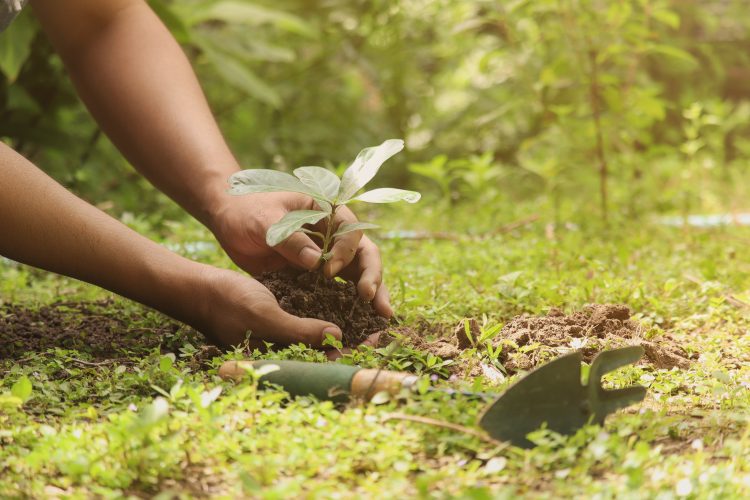Can food system innovation save a struggling ecosystem?
- Like
- Digg
- Del
- Tumblr
- VKontakte
- Buffer
- Love This
- Odnoklassniki
- Meneame
- Blogger
- Amazon
- Yahoo Mail
- Gmail
- AOL
- Newsvine
- HackerNews
- Evernote
- MySpace
- Mail.ru
- Viadeo
- Line
- Comments
- Yummly
- SMS
- Viber
- Telegram
- Subscribe
- Skype
- Facebook Messenger
- Kakao
- LiveJournal
- Yammer
- Edgar
- Fintel
- Mix
- Instapaper
- Copy Link
Posted: 4 June 2024 | Richard Zaltzman | No comments yet
Richard Zaltzman discusses the direction he believes is necessary to support our “vulnerable food system” through innovation and collaboration when it comes to nature protection and restoration.


By Richard Zaltzman, CEO of EIT Food
Nature and biodiversity are fundamental for humanity, providing all the resources we need to survive – including the food we eat.
But nature is experiencing a serious and continued decline, with the European Environment Agency’s latest report on the State of Nature finding that 81 percent of protected habitats, 39 percent of protected birds and 63 percent of other protected species are in a poor or bad state. Agricultural activities, land abandonment and urbanisation are the major pressures on habitats and species, and as a society, it is clear that we must make fundamental changes to safeguard the health and resilience of Europe’s nature.
A recent blow to efforts to protect our vital ecosystem is that the EU’s nature restoration laws – designed to reverse decades of damage to wildlife – have been taken off the agenda. On the surface, it looks pretty bleak: the withdrawal of member state support for EU-wide legislation on nature restoration is potentially devastating to Europe’s biodiversity and wildlife, which will have a profound impact on the ecosystems upon which our food production relies.
However, the lack of a nature restoration law should not mean the end for nature restoration, as it is not the responsibility of legislators alone.
The innovation opportunity
With European legislation out of reach for the short term, it is all the more important that other stakeholders step up to take action. Within the food system, there are already many communities, including farmers, food companies and NGOs, innovating and scaling solutions which support efforts to protect and restore nature.
Eco-friendly grocery swaps could cut emissions by more than a quarter, new study finds
This wave of innovation spans the entire food system, from supporting farmers to develop profitable, regenerative landscapes, through to building trust and transparency throughout the supply chain.
For instance, the Slovakian startup Ekolive, which is part of EIT Food’s RisingFoodStars community, is looking at the very origin of the food chain – soil – in a revolutionary way. Healthy soils are critical to support both our biodiversity and the resilience of our food systems, but 61% of EU soils are currently in a degraded state. Ekolive has a solution: a groundbreaking eco-bioleaching technology that replicates the natural process of soil formation to restore soil health and yields dramatically.
Another startup already achieving market success is GeoPard Tech, which supports farmers to both produce food more sustainably and manage their land in ways that protect the local environment. The German startup has created a cloud-based analytics platform to help users make the most of opportunities around digital farming, agronomy and precision farming.
Part of the challenge we face is that consumers – who play a vital role in the shift towards a more sustainable food system – currently lack the transparency they need to make informed decisions about their purchases. EIT Food’s most recent Trust Report reveals a stark attitude-behaviour gap in the European public – the difference between Europeans who say they want to live sustainably and those who make sustainably conscious food choices is more than 20%.
Tracifier, which is supported by EIT Food’s Seedbed programme, is building traceability and visibility for food supply chains using a new blockchain-powered food and certification verification data platform. This would enable users to learn with certainty where food products originate, what they contain, and how they were made. It’s particularly exciting that visual representations and engaging stories are a key part of Tracifier’s offering, as these will help to engage consumers with sustainable production and manufacturing methods, empowering them to make choices which support a resilient, nature-friendly food system.
Collaboration is key
We are already seeing significant efforts from farmers to shift to regenerative practices – a transition that is imperative to build a more resilient agricultural model which works in harmony with nature.
But the large-scale adoption of regenerative agriculture is impeded by several barriers. This includes a lack of viable business models for farmers, which results in uncertainty around changing farming practices and profitability in both the short and long term.
Without a clear, convincing demonstration at scale of the economic benefits of regenerative agricultural practices and the improvements in their business model, farmers are unlikely to make these changes. To overcome these barriers, it’s crucial that we provide farmers with compelling evidence and commitment from other value chain partners that shifting to a regenerative model will lead to long-term and proven positive financial outcomes.
EIT Food’s Regenerative Innovation Portfolio is a recent initiative aiming to remove existing barriers to adoption of regenerative agriculture, by demonstrating pathways to transformation at scale. By ensuring that farmers are the focus, we can support new cross-value chain solutions in Europe that will enable viable business models to transition to regenerative farming.
Central to the Portfolio is its ‘landscape’ approach. A landscape refers to a region or area where there is a shared interest across the value chain to transition to regenerative agriculture, which allows us to identify and engage companies who are willing to work together. Within a landscape, we are running a set of initiatives which exchange data, knowledge, solutions or resources to support farmers with the transition.
It is critical that we transition to an agricultural model that balances short-term productivity with long-term resilience of the land. By tapping into the combined knowledge of a collaborative network of partners, we will develop a variety of commercial models which support the transition to regenerative practices for a range of different types of farming across Europe.
What’s next?
Policymakers alone cannot provide the impetus for us to safeguard the future of our vulnerable food system.
All of us working across the food system have a responsibility to ensure our food is produced in a way that respects and protects our natural environment, so that we can meet our needs today without jeopardising our ability to feed future generations. From pioneer farmers to the companies across the globe making significant investments to create sustainable food systems, we can and will deliver the changes needed, and policy will (eventually) catch up.
About the author










